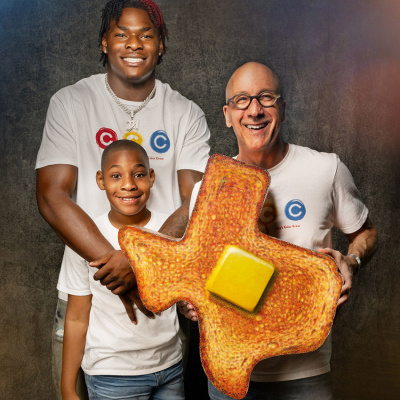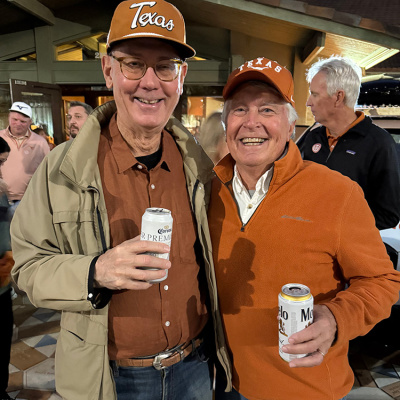The 27th Out
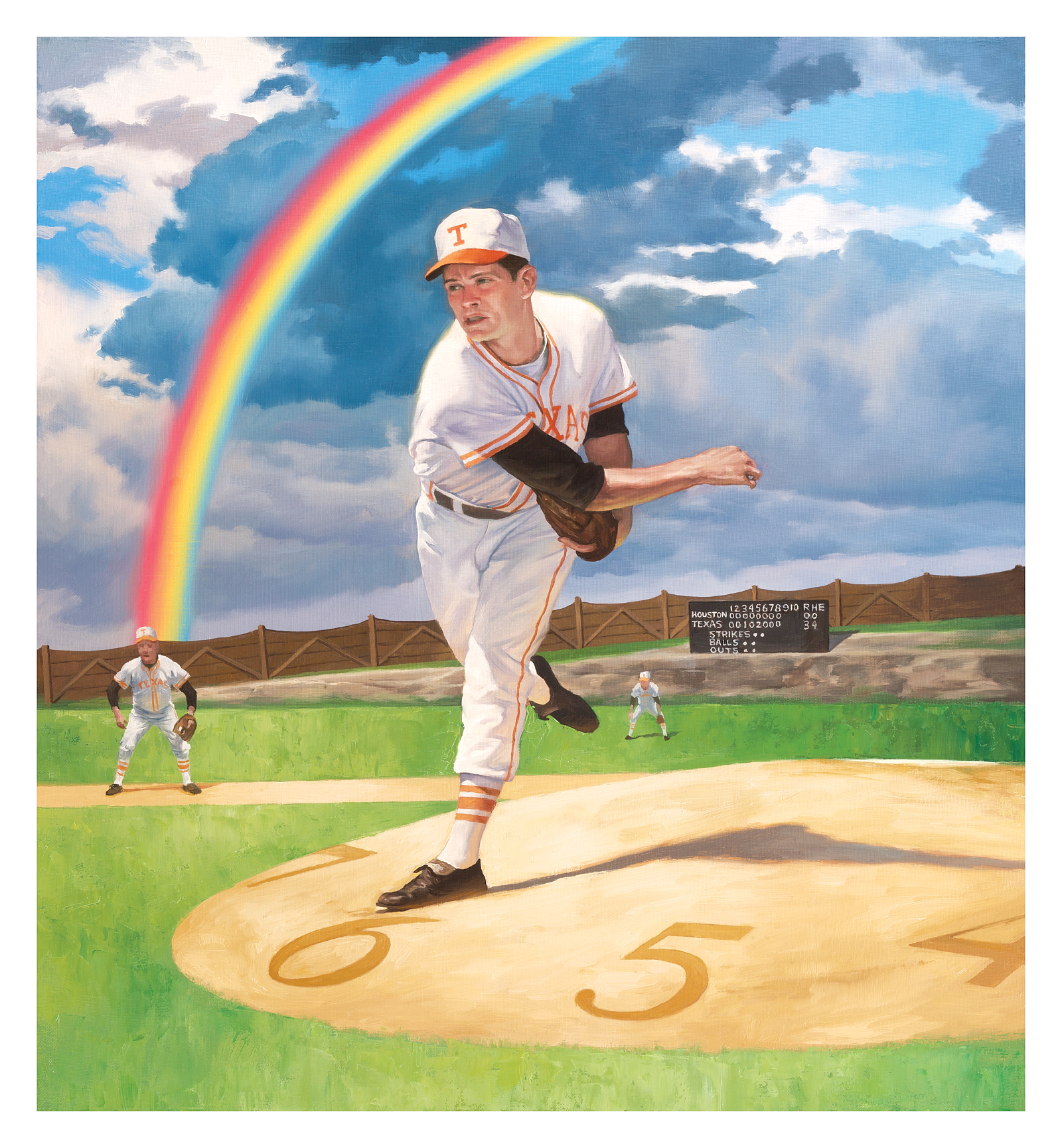
The final game of the Longhorns’ 1967 season was a nail-biter that changed the team, and one player’s life, forever.
“Baseball is a cruel game.”
This venerable adage is often considered a universal truth by a losing manager, coach, or player who failed when success mattered most.
I consider the phrase a way to avoid acceptance of personal failure: If baseball is indeed cruel, then the game causes a bad result, not any personal failure by team or player. For me, baseball was a simple game with no inherent cruelty: Get 27 outs and score more runs than the opponent. However, a defining moment of my UT baseball playing days caused me to reflect on heartbreaking events interwoven with the 27th out—and to wonder if there is truth to the adage. Is the game itself cruel?
On May 19, 1967, The University of Texas Longhorns and the University of Houston Cougars prepared to play the third game of the NCAA’s playoff series to decide which would advance to the College World Series in Omaha. For Texas, trips to Omaha were commonplace, but Houston had been only once. To add to the day’s significance, this game was the final Austin appearance for legendary Coach Bibb Falk, who was retiring at the end of the season.
No one expected the 1967 Longhorns to be in a playoff. Picked to finish in the Southwest Conference second division, Coach Falk had told the Austin American-Statesman that he hoped for a .500 season. The 1966 team’s MVP and best pitcher had signed a professional contract. His defection left the pitching to Tommy Moore, a hard-throwing senior righthander from Austin; Gary Gressett, a soft-tossing senior lefty from Mississippi—and a whole bunch of nobodies. I was one of the nobodies and was headed into my senior season. That year, pitching was a serious problem for Texas.
Before 1967, my UT baseball career had been full of bad luck and bad pitching. Coach Falk thought I was a relief pitcher. Because the Southwest Conference limited the number of allowable games, he predominantly used three pitchers—two starters and a reliever. A reliever who failed in his first appearance went to the back of the line to wait for another chance. Often, the second chance never came.
I pitched well in my first game in 1965 and became the reliever Coach Falk would use. After also pitching well against Texas Christian University, bad luck struck. My jaw was broken in a freak practice accident, and although my pitching was not affected, Coach Falk did not use me again. In 1966, bad pitching struck. My first appearance was mediocre, and I went to the back of the line to become a little-used righthander. My first relief opportunity in 1967 was with the bases loaded and no outs, and I struck out three consecutive hitters without allowing a run. On the strength of that performance, I became the relief pitcher and pitched well enough during the season to maintain my position as the playoffs began.
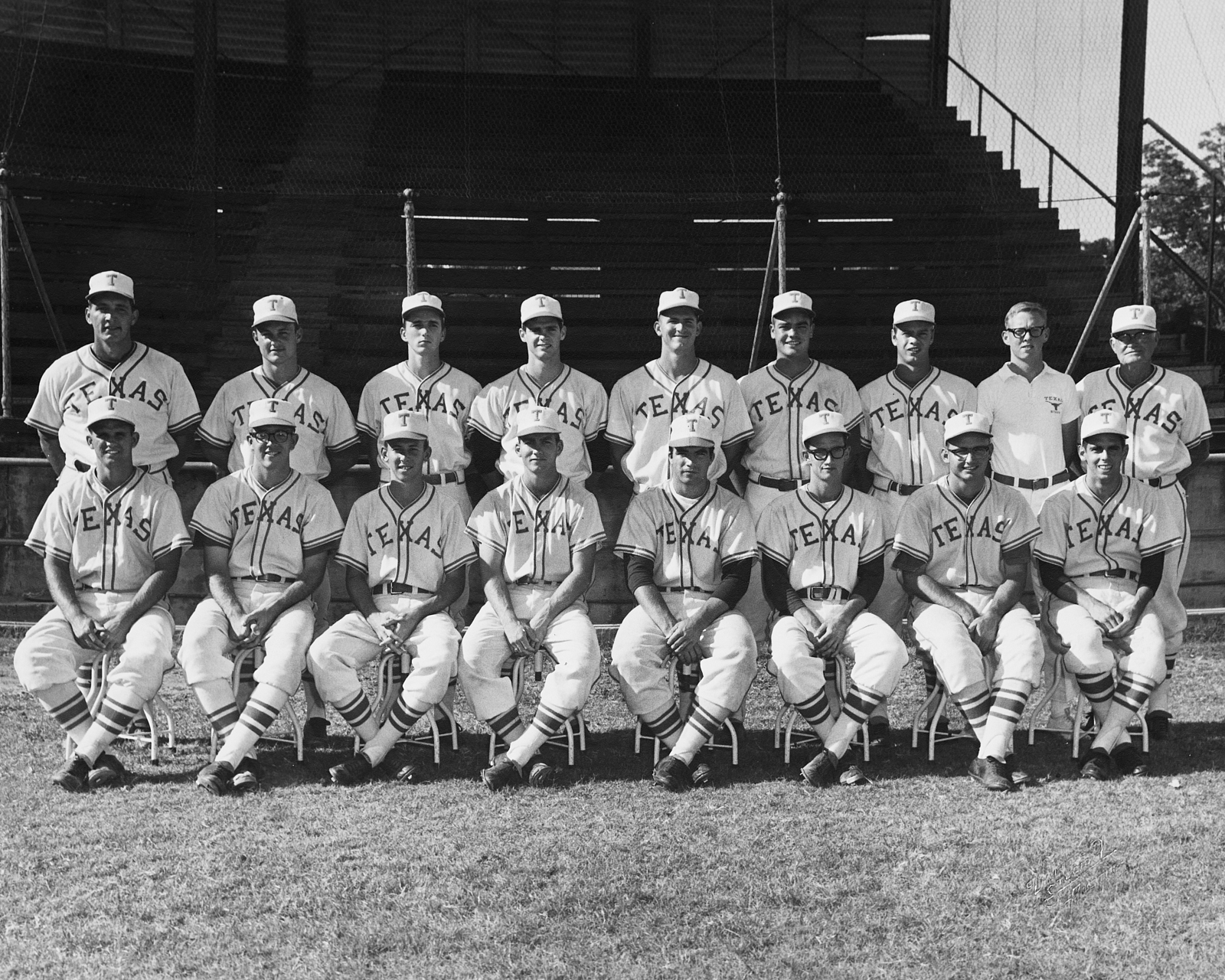
Moore was undefeated in 1967, All-Southwest Conference, and third team All-America, and the Longhorns surprised everyone by winning a Southwest Conference co-championship with TCU. UT had won the season series over TCU and advanced to the playoffs against Houston. The Longhorns had the Southwest Conference batting champion and hit 24 home runs, the second-highest total in the team's history. Gressett provided effective starting pitching behind Moore, and four Texas players received All-SWC honors. UH had a hard-hitting lineup led by junior Tom Paciorek. He was hitting over .400, had the school record for home runs, and was first team All-America.
My 1967 season, like the player, was good but not great. Coach Falk liked my sinking fastball and my outstanding control; I also threw a good curve, an OK slider, and an effective changeup. Going into the Houston series, I had pitched the third-highest number of innings on the team. Coach Falk brought me into games to protect a lead and into the games in which we were behind. I had given up about a hit per inning, but I had walked only one during the regular season. I was happy and satisfied with my role. I was the relief pitcher for the SWC champs, and I knew I would pitch in important games. I could neither ask for nor hope for more.
Texas and Houston split the first two games of the playoff series. The Cougars routed Texas ace Moore in the opening game in Houston, but the Longhorns tied the score before losing, keeping Moore’s record unblemished. I pitched four unremarkable innings. I gave up three runs but was the only Texas pitcher to retire Paciorek—on a towering fly ball that our center fielder caught with his back to the fence.
Two days later, the teams played at Clark Field in Austin. Moore pitched again, and with a second chance, he shut down the Cougars to even the series. Afterward, the foremost question was: Who would pitch the decisive third game the next day in Austin?
“Moore’s it until further notice,” Falk joked, but while speculating which pitcher he would select, the Austin American-Statesman mentioned virtually every pitcher on the UT team but me. Gressett, the logical choice, had left his last start early with a sore shoulder. I was neither surprised nor offended by not being mentioned. Coach Falk viewed me as a three-inning pitcher. I responded at the time with a laugh, “If I were the only pitcher at the ballpark, Coach Falk would start someone else.”
With this background, UT and UH prepared for the deciding game. During batting practice, I was engaged in my usual pre-game mindless chatter and chasing balls in the outfield when I saw Coach Falk walking toward the group of players I was in. He came directly to me and handed me a new baseball—the universal symbol for designating the starting pitcher. Coach Falk walked away without saying anything, and I was struck deaf and dumb by the realization that I was the starting pitcher in the most important game of our season and of my life.
I instantly thought of my dad, who was traveling to see his seriously ill father and would not see me pitch. There were no cell phones, of course, and I could not tell him the exciting news. Of the people closest to me, only my mother and brother would witness whatever thrills or disappointment resulted from this unexpected decision.
Coach Falk had defied the odds successfully with unconventional decisions throughout his storied career, but none was more surprising than his choice of me as the starting pitcher for this game. I retired to the locker room to compose myself for the biggest game of my life.
I was never more nervous than when I was warming up for that game. Nervousness sapped my energy and made me feel too weak to get the ball to the catcher. Warming up was often like this, but once on the mound and into the game, the nervousness disappeared. Coach Falk stood by the catcher to watch me throw. I finished my warm-up routine and walked toward the dugout to get ready for the game to start. Coach Falk approached me, and I expected words of encouragement. I should have known better. He said, “Go as hard as you can for as long as you can, and don’t embarrass anybody out there.” Then the game started, and I was on the mound.
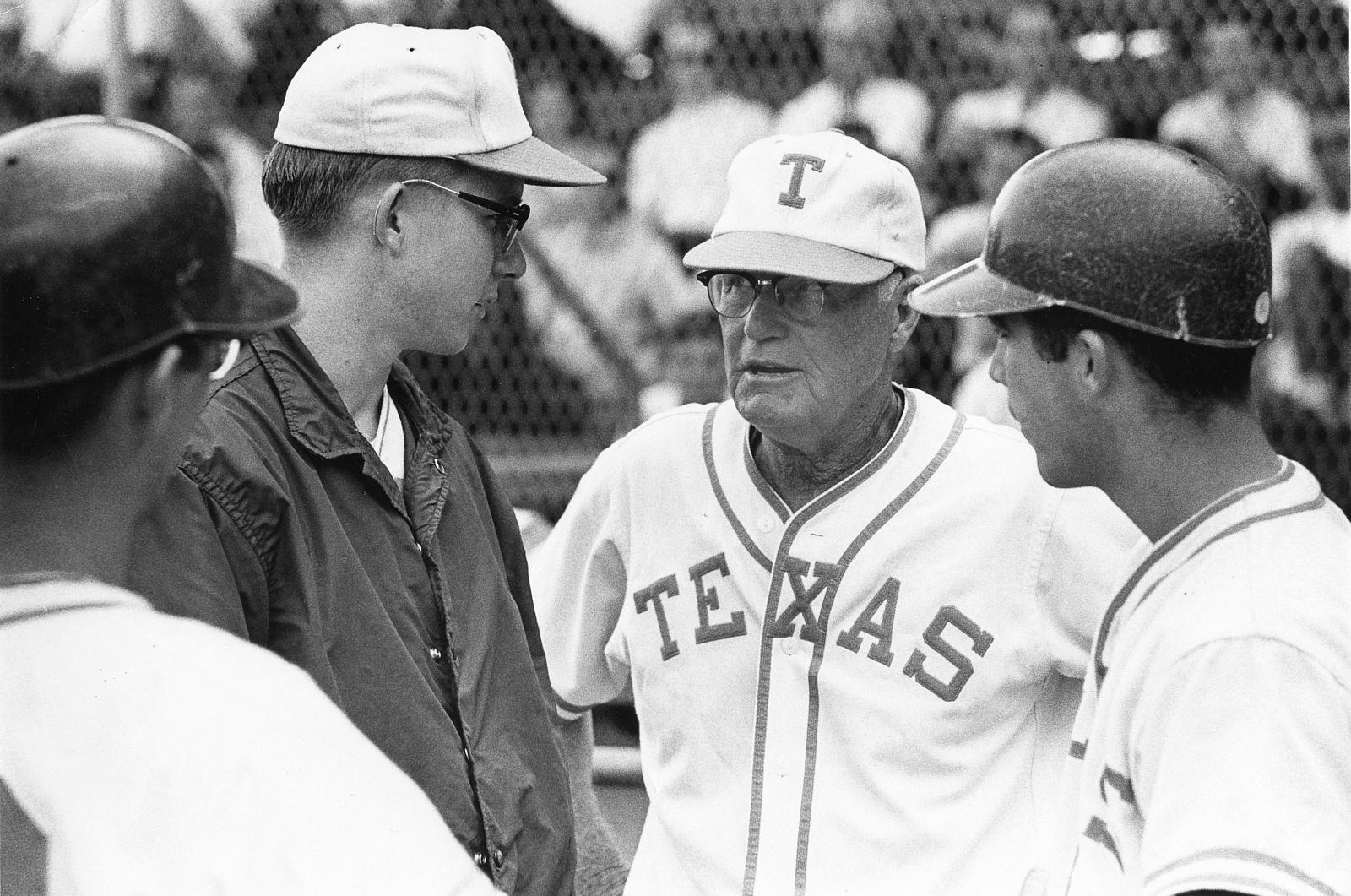
The tricks the mind plays are strange. I remember the ninth inning pitches clearly, but I remember very little about the rest of the game. The Statesman called my game “one of the most magnificent pitching performances in recent years by a Longhorn,” but I do not remember magnificence. I remember I was not nervous and did not think of the game’s importance after I began to pitch. I remember I was getting hitters out easily. I remember I used all my pitches, rather than throwing mostly sinkers as I did as a reliever. I remember I had uncanny control of my pitches, and I believed I could throw the ball through the eye of a needle. I remember walking a weak hitter, and an umpire’s wrong call denying us a double play after the walk. I remember we scored three runs early and should have scored six or seven. I remember I was in total control of the game, and my pitching dominance seemed like the most normal thing in the world.
Then came the top of the ninth inning. The Longhorns were ahead 3-0, and over eight innings, I had given up two hits, walked two, and struck out four. No UH baserunner had advanced past first base, and I had faced only 28 batters. As I began my warm-up pitches, the announcer reminded the overflow crowd that Coach Falk was coaching his final game in Austin, and I had not thought about his retirement before. None of his players believed this would be Falk’s last game, and we would be in the College World Series as soon as I got three more outs. I was not tired, and I knew I would get those three outs as easily as I had gotten the first 24. When I finished my warm-up pitches, I was relaxed and merely pitching a baseball game as I had been doing since I was 9 years old.
Ken Hebert tried to bunt his way on, but I fielded the bunt and threw him out for the 25th out. George Cantu popped up to our shortstop, and now I had 26. Then, Paciorek, the hitting terror of the series, was up and would make the 27th out to send us to Omaha. In the first two games, he had seven hits in nine at bats, but he was hitless in this game.
I can see the ninth inning pitches to Paciorek as if I am watching them on video today. I threw a fastball down the middle for strike one. Behind in the count 0-1, he lifted a high, lazy foul fly down the right field line. Our right fielder was a catcher who played the outfield because of his strong hitting, and he could not get to it in time for the catch. Paciorek’s would-be third out fell harmlessly to the grass, but the count was 0-2, and I had him.
My next pitch was a slider, maybe an inch or two outside. The plate umpire was John Mazur, a local postman who had called balls and strikes for my games since Little League. When he called the pitch a ball, I thought: Mr. Mazur, after all these years, you owed me that pitch. The count on Paciorek was 1-2, and I still had him. Our catcher called for a changeup, and I made a mistake in my approach to the pitch. I loved his pitch selection because a changeup had Paciorek off stride earlier, but when I accepted the sign, I thought: Just don’t bounce it. Of course, with that negative thought, I bounced it at his feet, and despite being off stride, Paciorek held up his swing. The count was 2-2.
James Scheschuk, my senior classmate catcher, called for an up-and-in fastball, and I put the pitch exactly where he wanted. The pitch jammed Paciorek, but he fisted a slow roller down the third baseline that I could not field. Our third baseman was an outfielder playing infield for his powerful bat, and he was very deep behind the bag. His all-out charge to make the play was too late, and Paciorek beat the throw for an infield hit.
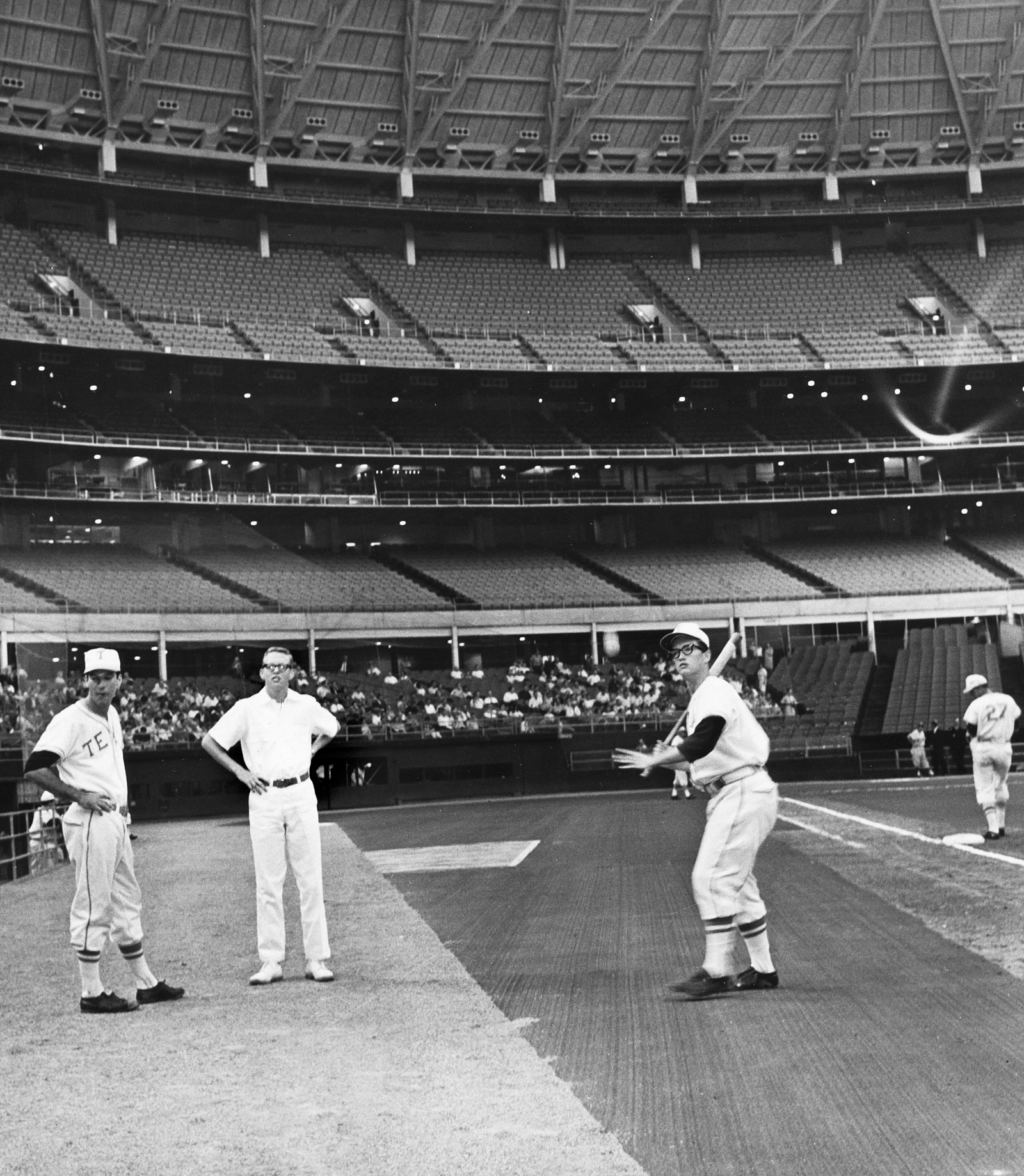
At that moment, the umpire signaled Paciorek safe, and I remember a fleeting feeling of fatigue. Perhaps the spell had been broken, but the 27th out was still there to get. After a swinging strike, Bo Burris lined a single to left field moving Paciorek to second base. Ronnie Baker, the next hitter, moved into the batter’s box and wasted no time. My first pitch was a slider headed for the outside corner, and he hooked a low liner down the left field line. Paciorek and Burris scored, and as I returned to the mound with a one run lead to protect, Baker was on second, and Falk was on his way to me from the dugout.
My first thought was: No! You cannot take me out of this game now! He could and he did. Although for a moment, I thought he would allow me one more hitter. I received a standing ovation as I left, but applause was not consolation for me. Moore and Gressett were both warmed up and ready, but Coach Falk inexplicably allowed the pitching coach to send in a reserve infielder who threw hard but had pitched fewer than nine innings all season. On a 3-2 pitch, the reliever walked the weak-hitting UH shortstop, and again on a 3-2 pitch, the reliever gave up a two-run triple to the next hitter. Gressett came in to retire the side with one pitch, but the damage was done. I had a no decision, and we were behind 4-3 with only three outs to go. UT rallied valiantly in the bottom of the ninth, but our 27th out was the tying run thrown out at home to end simultaneously the game, the Longhorns’ season, my time as a Longhorn pitcher, and Bibb Falk’s coaching career.
As was typical of the time, there was no smack-talking or disrespectful taunting. The 1967 Longhorns and Cougars came together to congratulate, commiserate, and wish each other well. Several of their players were gracious to me in victory; Paciorek put his arm around me and told me he was happy to win but sorry to have ruined the great game I pitched. I appreciated their sportsmanship, but our loss crushed me. The game was my last, as it was Coach Falk’s last.
I grew up in Austin dreaming of playing some sport for the Longhorns, but with the opportunity to put UT into the College World Series, I failed to get the 27th out with but one strike to go. I had thrown only three pitches following Paciorek’s infield hit, and now my time as a Longhorn pitcher was over. The suddenness and finality were shocking.
The teams parted and went on to their respective destinies. UH lost the first game of the double elimination College World Series, but as they did on May 19, the Cougars fought back in the tournament before losing the championship game. UT’s baseball season ended that day, and I and the other seniors graduated and began our futures. For me, that was high school teaching and coaching, and later law school and lawyering, and I had reasonable success in both careers. Paciorek, my worthy nemesis, spent 18 seasons playing major league baseball and another 19 seasons broadcasting baseball. No doubt we are both satisfied with our lives after our ephemeral encounters with one another, but I wonder if he still thinks about the deciding game in 1967. I certainly do.
With the perspective of several decades, including many years coaching baseball, I realize Coach Falk’s decision to remove me was correct. He never expected me to still be pitching in the ninth inning, and UH had just gotten three consecutive hits to narrow our lead to 3-2. There are many “what ifs” to ponder without this decision being one of them, however. I could have gotten Paciorek out several times in the ninth inning. What if the umpire had given the hometown pitcher the benefit of an extremely close pitch on 0-2? What if Coach Falk had substituted a faster player in right field for defense to start the ninth inning? What if I had a positive approach and had not bounced the changeup? What if our third baseman had been playing Paciorek behind the bag but not so deep? What if after Paciorek’s hit, I had reverted to my customary role of reliever and thrown nothing but sinkers?

The biggest question of all is: What if Coach Falk had used one of our two best pitchers to get the 27th out instead of an infielder with a great arm who rarely pitched? I will never understand why a Hall of Fame coach with 477 career victories, 20 SWC championships, and two national championships allowed a graduate assistant pitching coach to make the most important pitching change of the season. Coach Falk did, though, and he later provided the 1967 Longhorn team its epitaph with his final comment to print and broadcast reporters as UT’s coach: “Some days you try things, and they work; other days you try, and they don’t work.”
He never spoke to me about this game, either right after it or during the many times we spoke before he died. I will never know what he was thinking that day as he walked to the mound to remove me.
So, is baseball a cruel game? Certainly, what happened to the Longhorns and to me in the UH game was cruel, but what happened to Paciorek and to the Cougars was wonderful. Our opponents refused to give up and forced us to record all 27 outs to beat them. When we threatened to steal their victory with our ninth inning rally, UH got the 27th out. I was the one who could not get the 27th out. It wasn’t some malevolent game cruelly denying me a victorious finish. I failed when success mattered most, and accountability for that failure must be with me, not attributed to some inanimate game. If one’s best is not good enough, congratulate the winners, and move on.
With the perspective of years and experience, I gained much from the UH game which had caused so much disappointment. I learned sometimes a player can be at his absolute best, but his best still is not enough to overcome the opponent. I learned to respect opponents who fight their hardest to avoid defeat. I learned no one is entitled to victory or success, no matter how much he may want it or how hard he may try. I learned losing is as much a part of the game as winning, and the outcome does not diminish the accomplishments of those who competed.
Most importantly, I learned and believe earnestly there is no disgrace or dishonor in failure if one has tried his hardest to succeed. Disgrace is giving less than one’s best effort or allowing failure to kill one’s will to compete. True success lies not only in victory but also in picking oneself up after a gut-wrenching loss and striving to be better next time. If fans understand how difficult attaining victory is and how much competition requires of players’ bodies and minds, appreciating a team and its players for the quality of the competition is more rewarding than focusing on the score. Perhaps then despicable epithets like “choke” to disparage a losing effort might never be uttered.
No, baseball is not a cruel game, despite the occasional elusiveness of the 27th out. On the contrary, the game allows both teams an equal opportunity to win and requires the winner to get all 27 outs. The game rewards those who do more when victory or defeat hangs in the balance, and it penalizes those who fall short in those situations. Whether one succeeds or fails when all can be won or lost is the essence of competition. The game benignly provides a stage to determine a contest—and offers no guarantees.
We lost on that fateful day in May of 1967, but the game of baseball was not to blame. Today I recall those events with some regret but also with great pride in my performance. I failed to get the 27th out, but I was the best I ever was. The stakes were high, and the competition was electrifying. The game promises no more, and I was fortunate to have been a part of it.
Credits: Illustration by Roberto Parada; UT Athletics; Cactus yearbook; Texas Legacy Support Network
